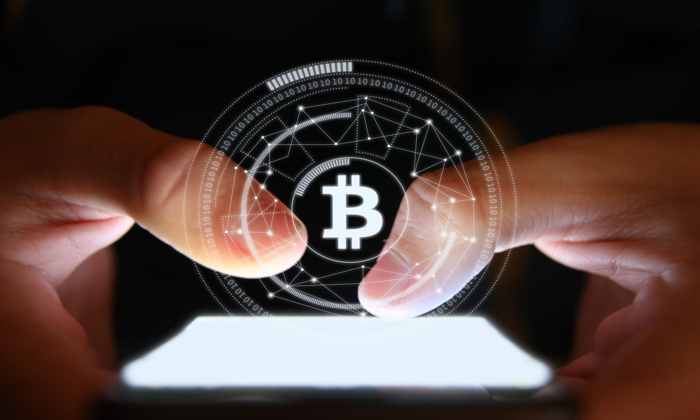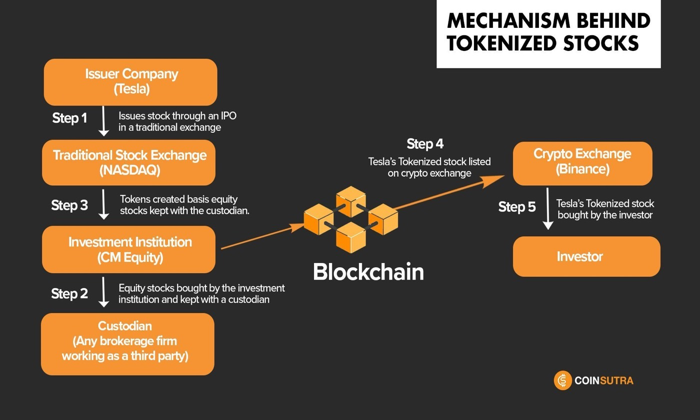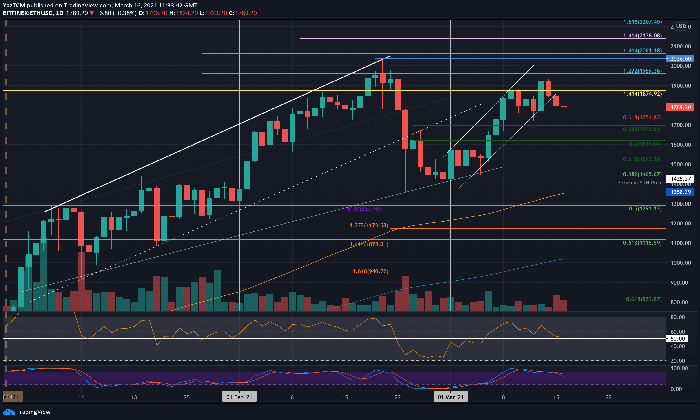North Korea crypto hacks have risen to the forefront of international cybersecurity discussions, particularly as the G7 leaders prepare for their upcoming summit in Alberta, Canada. As reports suggest, these cryptocurrency thefts and the attendant cyberattacks threaten not only the integrity of digital finance but also global security frameworks. Notably, hacking groups, including the notorious Lazarus Group, have perpetrated unprecedented crypto heists, further complicating international responses to these cybersecurity threats. The alarming scale of the stolen funds, which have reportedly reached billions of dollars, highlights the need for an urgent and unified approach from world leaders. While the summit is expected to address pressing global issues such as conflicts in Ukraine and Gaza, North Korea’s escalating cyber operations cannot be overlooked, signaling a critical juncture in the evolution of international cyber policy.
In recent discussions surrounding North Korea’s evolving tactics in digital crime, terms such as cyber theft and malicious hacking practices have gained prominence. Cryptocurrency heists linked to North Korean entities underscore the growing threats these activities pose, not only to financial markets but also to national security interests globally. Known for their sophisticated cyber capabilities, groups like Lazarus have shown an unprecedented ability to evade conventional defenses and launch successful attacks. As international authorities grapple with these security challenges, the need for cohesive strategies and global cooperation in response to such cyber threats has never been more essential. The upcoming G7 summit is poised to be a pivotal moment, focusing on how nations can collectively address the ongoing risk posed by North Korean digital malfeasance.
The G7 Summit: A Crucial Platform to Address North Korea’s Cyber Threats
The G7 summit serves as a pivotal gathering where the world’s major economic powers can unify their stances on pressing global issues. This year, one of the significant topics on the agenda will be North Korea’s cyber hacks and their implications for global security. Experts predict that the summit will not only shed light on the alarming frequency of cryptocurrency theft associated with North Korean hackers but will also aim to forge an international strategy to counter these cybersecurity threats. As nations come together in Alberta, addressing the rising influence of hacking groups like the Lazarus Group is crucial for creating a robust response to cyberattacks.
As countries gather to discuss their shared concerns about North Korea, it is essential to consider how cybersecurity threats extend beyond mere theft. The ramifications of North Korea’s cyber activities have far-reaching consequences, affecting the stability of the cryptocurrency market and posing severe risks to financial institutions globally. Should the G7 leaders establish a collective response to this issue, it may encourage other countries to take preventive measures against potential cyber intrusions, ultimately fortifying financial systems worldwide.
Cryptocurrency Theft: The Financial Backbone of North Korea’s Regime
North Korea has increasingly relied on cryptocurrency theft as a method to circumvent international sanctions and fund its controversial programs. Reports suggest that hackers associated with the North Korean regime, particularly the notorious Lazarus Group, have become adept at exploiting vulnerabilities in cryptocurrency exchanges, resulting in substantial financial losses for their targets. In 2024 alone, it is estimated that they have orchestrated around 47 significant hacks, amounting to over $1.3 billion in stolen assets. This criminal behavior not only underscores the country’s reliance on cyber crime for financial survival but also raises urgent questions regarding the robustness of existing cybersecurity measures across the globe.
In addition to direct theft, North Korean operatives have been known to infiltrate cryptocurrency companies, heightening the complexity of the cybersecurity landscape. The fact that North Korean IT workers have been dispatched to undertake insider attacks poses a unique threat to firms operating in the crypto space. By establishing shell companies and engaging in deceptive practices, these operatives can spread malware and manipulate unsuspecting cryptocurrency developers. It is vital for organizations to adopt advanced security protocols and collaborate with international authorities to mitigate these evolving threats and protect their assets.
The Role of Blockchain Analytics in Combating North Korean Cyber Operations
Blockchain analytics is becoming an invaluable resource in the fight against North Korean cyber operations, particularly when it comes to tracking cryptocurrency thefts. Firms like Chainalysis have implemented sophisticated systems to monitor suspicious transactions and trace the flow of stolen funds, providing a clearer picture of the extent of these breaches. By analyzing transaction patterns on the blockchain, cybersecurity experts can identify connections between various hacks and potentially uncover new methods used by the Lazarus Group and other North Korean cybercriminals. This data-driven approach is essential for developing effective countermeasures and reinforcing international cooperation against cyber threats.
Moreover, the value of blockchain analytics extends beyond immediate investigation purposes. These tools can aid in the development of preventative measures to enhance security protocols within the cryptocurrency sector. By understanding how North Korean hackers operate and the techniques they employ, authorities and private sector companies alike can implement best practices to fortify their defenses against future attacks. Collaborative efforts among international stakeholders within the cryptocurrency industry, supported by blockchain analytics, can help create a safer environment that protects assets and upholds the integrity of the ecosystem.
International Responses to North Korean Cybersecurity Threats
The rising threat posed by North Korea’s cyber operations has evoked varied responses from the international community, particularly among G7 countries. As evidenced by recent statements from the US, Japan, and South Korea, there is an acute awareness that proactive measures need to be adopted to thwart these cybersecurity threats. Initiatives may include heightened intelligence sharing, joint cybersecurity drills, and even diplomatic discussions aimed at persuading North Korea to cease its hacking activities. Such collective actions are vital for fostering a unified front against cyber criminals operating on a global scale.
Furthermore, international agencies could push for stricter regulations on cryptocurrency trading platforms to implement enhanced security features. By ensuring that exchanges maintain a higher level of scrutiny and transparency, governments can reduce the risks associated with stolen assets. Support from the G7 summit could see the establishment of a protocol for international cooperation in cybersecurity that mandates swift action against identified threats from North Korea. A coordinated response could lead not only to immediate measures against specific attacks but also to long-term resilience against future cybersecurity threats.
Lessons from Previous Lazarus Group Hacks
The history of hacks attributed to the Lazarus Group emphasizes the need for vigilance in cybersecurity, particularly within the cryptocurrency landscape. This group has executed some of the most significant and brazen thefts in recent history, including the unprecedented $1.4 billion hack on Bybit. Such incidents serve as stark reminders of the necessity for continuous improvement in security measures for cryptocurrency exchanges and related industries. Each hack contributes to a learning experience that strengthens defenses against potential threats, highlighting the urgency for organizations to stay informed about emerging cybersecurity trends and attack vectors.
Moreover, analyzing past Lazarus Group hacks illustrates the converging lines between technical sophistication and psychological manipulation in cybercriminal activities. The group employs a variety of tactics, from sophisticated malware to phishing schemes that target unsuspecting employees in the cryptocurrency sector. Understanding these methods is critical for implementing training programs aimed at enhancing employee awareness and preparedness. By learning from these lessons, organizations can integrate better practices that bolster their cybersecurity frameworks against similar attacks.
The Impact of North Korean Cyber Activities on Global Financial Stability
North Korea’s persistent cyber activities have significant repercussions not just for the nation itself, but also for global financial stability. The repeated successful hacks contribute to a climate of insecurity in the cryptocurrency industry, which can lead to diminished investor confidence and volatility in the market. When substantial thefts occur, they impact the perceived legitimacy of cryptocurrency as an investment and a trading vehicle. Consequently, stakeholders, including governments and regulatory bodies, must remain vigilant in order to safeguard their financial systems and maintain the health of the global economy.
Additionally, the implications of North Korean cyber operations extend to the broader financial ecosystem, potentially inviting regulatory measures that could stifle innovation within the cryptocurrency sector. As authorities react to these threats, we may see the implementation of stricter regulations that aim to fortify defenses against cybercriminal activities. While these measures are necessary for security, they could also inadvertently slow the growth and adaptation of emerging technologies in finance. It is crucial that the global community finds a balance between security and continued innovation to secure a prosperous future in the rapidly evolving digital currency landscape.
Future Outlook: Mitigating North Korea’s Cyber Threats Through Cooperation
Moving forward, the international community must prioritize cooperative efforts to mitigate North Korea’s cyber threats. The upcoming G7 summit presents a unique opportunity for leaders to reinforce collaboration among nations with shared interests in protecting their financial sectors from cybersecurity threats. Establishing protocols for information sharing and coordinated incident responses can empower nations to respond effectively to emerging challenges. This collaborative approach not only strengthens defenses against North Korean cyber operations but also underscores a collective commitment to global security and stability.
In addition, fostering public-private partnerships within the cryptocurrency industry can lead to innovative solutions that enhance cybersecurity measures. By engaging exchanges and financial institutions in dialogues with governments, a unified strategy can emerge that allows for the seamless sharing of threat intelligence and rapid response capabilities. As cyber threats become increasingly sophisticated, such partnerships are essential for reinforcing defenses and ensuring that stakeholders are equipped to deal with the complexities of cybersecurity in the digital age.
Enhancing Cybersecurity in Cryptocurrency: Best Practices for Deterance
In light of the persistent threats posed by North Korea and groups like Lazarus, it is critical for cryptocurrency exchanges to adopt comprehensive cybersecurity best practices. Implementing multi-factor authentication, employing advanced encryption techniques, and conducting regular security audits can significantly reduce vulnerabilities. Additionally, continuous employee training on recognizing phishing attempts and social engineering tactics can foster a more aware workforce that is capable of identifying and mitigating potential breaches before they occur. These measures not only protect individual companies but also contribute to the overall security of the cryptocurrency ecosystem.
Moreover, cryptocurrency exchanges should stay abreast of the latest cybersecurity trends and adapt their strategies accordingly. Engaging in partnerships with cybersecurity firms can provide valuable insights into threat intelligence and emerging attack vectors, enhancing overall preparedness. Through collaboration and investment in preventative measures, the industry can fortify its defenses, minimizing the potential impacts of hacks orchestrated by North Korean actors and fostering a safer environment for users and investors alike.
Surveillance Technologies: A Double-Edged Sword Against Cybercrime
As the fight against cybersecurity threats evolves, the role of surveillance technologies has come under scrutiny. On one hand, enhanced monitoring tools can help identify suspicious activities in real-time, providing a critical edge in combatting North Korean cyber operations. Such technologies allow for quicker responses to potential hacks, preserving the integrity of the cryptocurrency market. However, the deployment of surveillance presents ethical considerations, raising concerns about privacy and the extent of monitoring required to protect individuals and organizations.
Balancing enhanced surveillance with individual rights will be crucial in shaping the future of cybersecurity policy in the cryptocurrency space. As regulatory frameworks emerge, stakeholders will need to collaborate to ensure that any enacted measures maintain a focus on protecting financial systems without infringing on personal privacy. Continuous dialogue between governments and civil society can help foster a responsible approach that prioritizes security while championing the ethical use of technology in combating the sophisticated threats posed by North Korea.
Frequently Asked Questions
What are the recent developments regarding North Korea crypto hacks at the G7 summit?
At the upcoming G7 summit in Alberta, Canada, leaders are expected to discuss North Korea’s increasing cyberattacks and cryptocurrency thefts. These discussions come amid concerns over the Lazarus Group, a North Korean hacking organization responsible for significant cryptocurrency hacks, including a record $1.4 billion theft from Bybit.
How has North Korea’s cryptocurrency theft impacted global cybersecurity threats?
North Korea’s cryptocurrency thefts have heightened global cybersecurity threats, prompting international concern over the tactics used by hacking groups like the Lazarus Group. Their operations have not only stolen billions but have also raised alarms about insider threats posed by North Korean workers infiltrating tech companies.
What is the role of the Lazarus Group in North Korea’s crypto hacks?
The Lazarus Group plays a crucial role in North Korea’s cryptocurrency hacks, being responsible for numerous high-profile cyberattacks that have collectively stolen over $1.3 billion in 2024 alone. Their methods include sophisticated tactics to exploit security vulnerabilities within cryptocurrency exchanges and platforms.
What international response is necessary to address North Korea crypto hacks?
A coordinated international response is essential to address North Korea crypto hacks effectively. This includes enhancing cybersecurity measures globally, sharing intelligence among nations, and tightening regulations around cryptocurrency to prevent further funding of North Korea’s illicit programs.
How can cryptocurrency companies protect themselves from North Korea’s cyber threats?
Cryptocurrency companies can protect themselves from North Korea’s cyber threats by implementing robust cybersecurity measures, conducting thorough employee background checks, and being vigilant against insider threats. It’s also critical to establish partnerships with cybersecurity experts to monitor and respond to potential attacks.
What are the implications of North Korea’s cyber operations on global finances?
North Korea’s cyber operations, particularly its cryptocurrency thefts, have significant implications on global finances as the stolen funds often support the regime’s military ambitions and evade international sanctions. This creates ongoing tensions and challenges for international security and financial systems.
How do North Korea’s crypto hacks affect international relations?
North Korea’s crypto hacks significantly affect international relations, as they lead to heightened tensions and provoke responses from countries like the US, Japan, and South Korea. The need for collaboration among nations to counteract these cyber threats is increasingly urgent, especially in light of potential discussions at the G7 summit.
What specific incidents illustrate the scale of North Korea’s cryptocurrency thefts?
Specific incidents illustrating the scale of North Korea’s cryptocurrency thefts include the $1.4 billion hack on Bybit and a series of 47 heists documented by Chainalysis, which collectively underscored the magnitude of cyber threats posed by North Korean hackers like the Lazarus Group.
Why are North Korean cyber activities considered a major threat to the cryptocurrency industry?
North Korean cyber activities are considered a major threat to the cryptocurrency industry due to their sophisticated methods, ability to infiltrate exchanges, and successful thefts exceeding billions of dollars. These activities compromise the integrity of the crypto market and pose risks to investors and companies alike.
| Key Point | Details |
|---|---|
| G7 Summit Discussion | North Korea’s crypto hacks may be a key topic at the next G7 summit in Alberta, Canada. |
| Significant Cyber Attacks | North Korea is responsible for substantial cryptocurrency theft, exceeding billions in losses for the industry. |
| Lazarus Group Involvement | The Lazarus Group is identified as a major hacking group that has executed notable attacks, including a $1.4 billion hack on Bybit. |
| Insider Threats | North Korea has sent tech workers to infiltrate cryptocurrency firms, posing risks as insider threats. |
| Funding for Weapons Programs | Hacked cryptocurrency funds are being used to support North Korea’s weapons development and evade sanctions. |
Summary
North Korea crypto hacks have emerged as a significant concern in the realm of international cybersecurity. As the G7 summit approaches, discussions will likely focus on the increasing frequency and severity of cyberattacks from North Korea, which have seen hackers steal staggering amounts of cryptocurrency to subsidize the regime’s operations and military advancements. This compelling issue underscores the need for a unified global response to combat such cyber threats effectively.
North Korea’s crypto hacks have emerged as a critical point of concern in the global discourse on cybersecurity, especially as leaders prepare for the upcoming G7 summit. Recent reports suggest that the Group of Seven could address North Korea’s escalating cryptocurrency thefts and cyberattacks during their meeting in Alberta, Canada. With these hacks reportedly funding the regime’s illicit activities, they pose a significant challenge to international security. The notorious Lazarus Group has been particularly active, executing high-profile hacks that have resulted in billions in losses and raising alarms about the broader implications of these cybersecurity threats. As discussions at the G7 summit unfold, the international response to North Korea’s cybercriminal exploits will likely determine the future landscape of cryptocurrency security and global cooperation.
The rising tide of cybercrime associated with North Korea has drawn attention to the alarming phenomenon of cryptocurrency-related thefts and hacking incidents. As G7 leaders convene to tackle pressing world issues, including the implications of North Korean cyber operations, the conversation will likely pivot towards strategies for combating sophisticated cybersecurity threats. With notorious hacking entities like the Lazarus Group at the forefront, the need for a cohesive international response to piracy in the cryptocurrency arena is more urgent than ever. As these rogue state tactics evolve, including the infiltration of tech companies by North Korean operatives, dialogue surrounding cybersecurity measures will be pivotal. This backdrop underscores the necessity for global leaders to forge robust frameworks that can effectively counteract such pervasive cyber threats.















